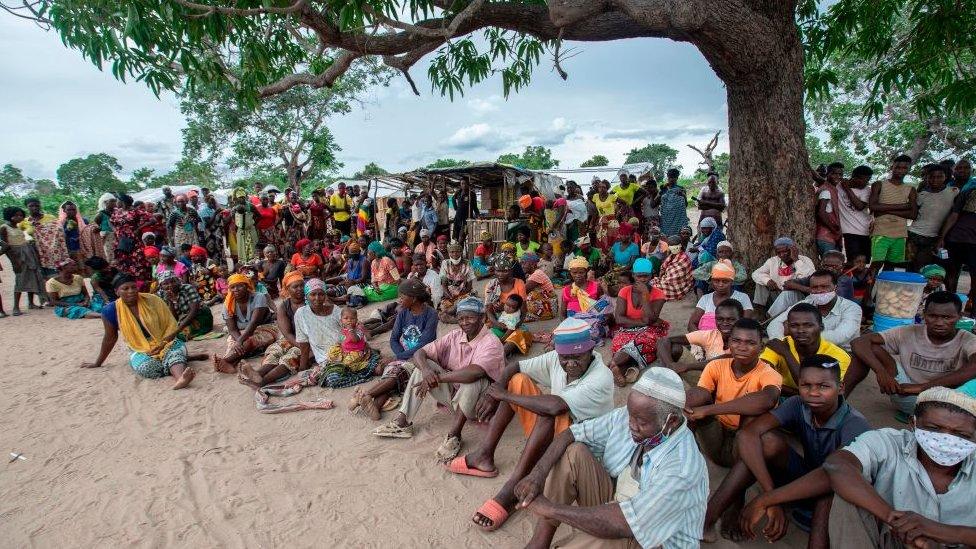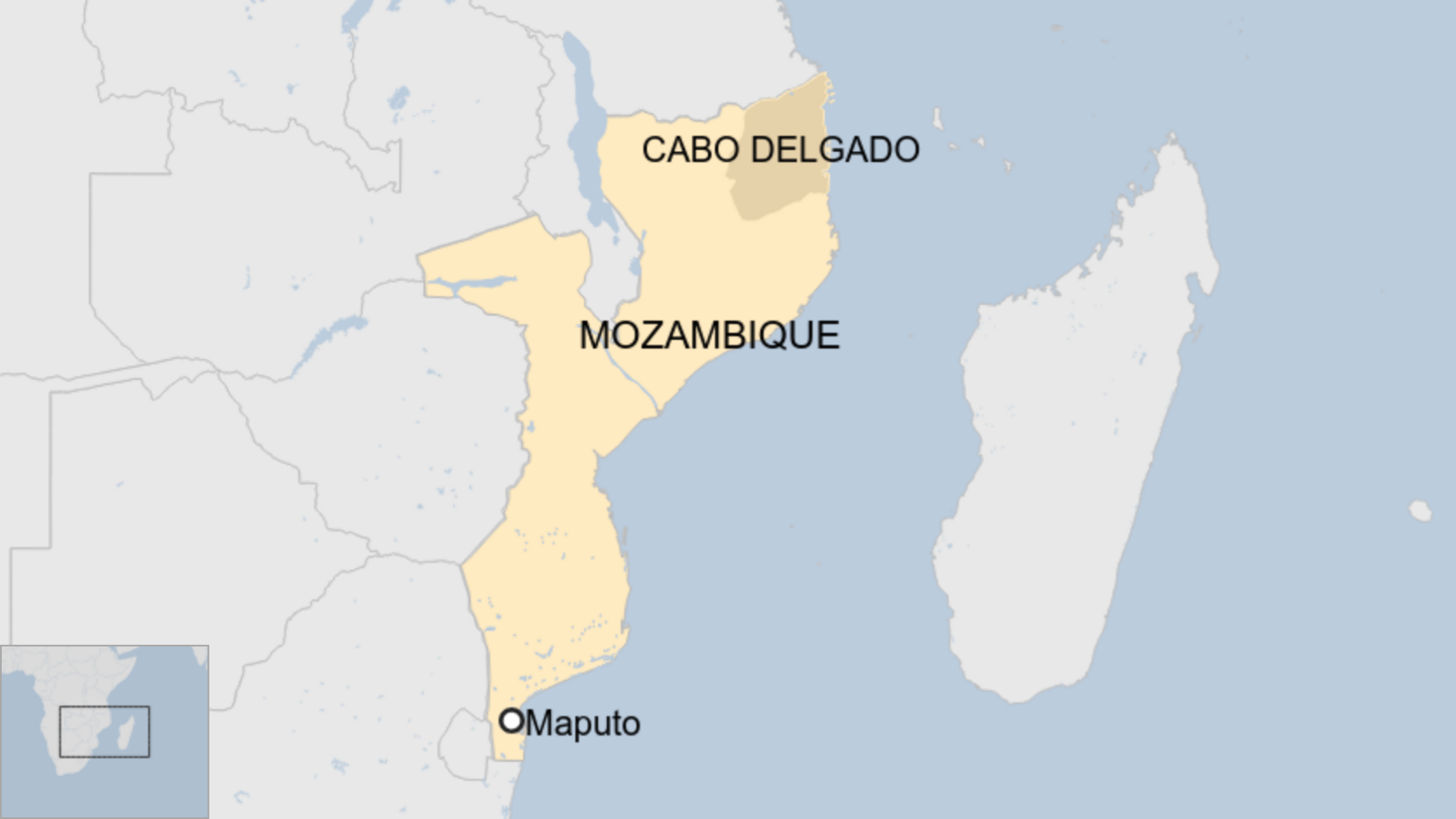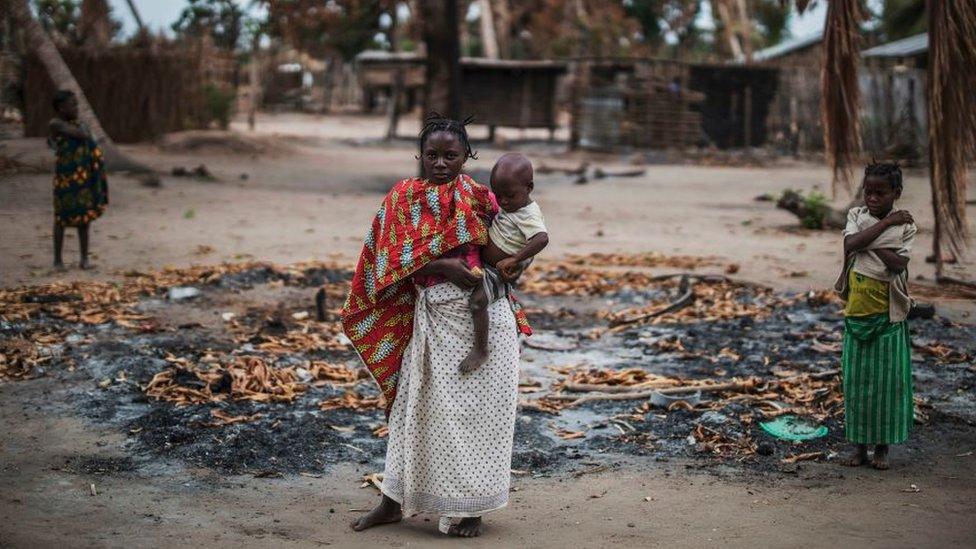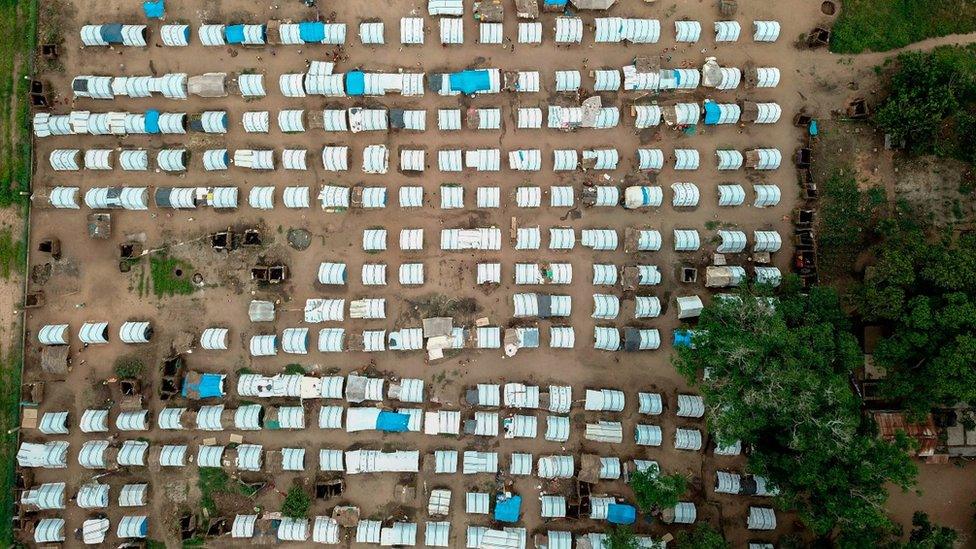Mozambique conflict: What's behind the unrest?
- Published

Thousands have been forced to flee their homes
A sharp increase in militant attacks in Mozambique's northern province of Cabo Delgado has forced the government to reassess its strategy against the Islamist insurgency.
What's behind the conflict?
The region has long experienced instability, but the insurgency involving Islamist militants began in 2017.
Local al-Shabab militia operating in the area are believed to have links to the wider Islamic state group (IS).
High levels of poverty and disputes over access to land and jobs have contributed to local grievances.
But Cabo Delgado's importance for the government, and a further reason for local frustrations, lies in the rich off-shore natural gas reserves being explored in collaboration with multinational energy companies.

The militants have had considerable success gaining recruits both from within the province and further afield.
"I would say based on how quickly they spread, it speaks to a huge increase in recruitment," said Emilia Columbo, a senior associate at the Washington-based Center for Strategic and International Studies.
"We get reports of boats full of youths getting intercepted on the way to Cabo Delgado."


Attacks by militant groups have increased significantly over the past year.
There have been more than 570 violent incidents from January to December 2020 in the province according to the Armed Conflict Location and Event Data Project (Acled), which monitors political violence globally.
Human rights groups have reported the extensive destruction throughout northern Mozambique by the militants.
These have included killings, beheadings and kidnappings, with deaths from attacks carried out by all groups involved in the conflict rising sharply last year.
The most horrifying incident was of 50 people beheaded in a sports field over the course of a weekend.


The instability has led to huge numbers of people leaving their homes in areas where conflict has erupted.
Nearly 670,000 people were internally displaced in Cabo Delgado, Niassa and Nampula provinces by the end of 2020, according to the UN Office for the Co-ordination of Humanitarian Affairs.

Villages across northern Mozambique have been destroyed in militant attacks
What is the role of US forces?
To support its efforts in tackling the growing insurgency, the Mozambican government has invited in US military advisers.
The agreement between the Mozambican and US governments is for American soldiers to train local forces fighting the militants.
"US special operations forces... will support Mozambique's efforts to prevent the spread of terrorism and violent extremism," the US embassy in Mozambique said on 15 March.
"Clearly, the US is trying to extend its influence," says Jasmine Opperman, an analyst with the monitoring group Acled.
But she adds that it is a complex local conflict, and that "the US is framing the insurgency in a very over-simplified manner by referring to [the militants] as an extension of the Islamic State".
On March 10, the US government designated al-Shabab in Mozambique as a "foreign terrorist organisation", external, describing it as an IS-affiliate.
Portugal, the former colonial power in Mozambique, has also committed to training the military.
"We will send a staff of approximately 60 trainers to Mozambique to train marines and commandos," said a Portuguese official.
Mercenary forces
Although the Mozambican government is reticent about acknowledging their presence, private military contractors have been operating in the region alongside its security forces.
Initially in 2019, Russian mercenaries from the Wagner group, external were involved in the region.
More recently, the South Africa-based Dyck Advisory Group (DAG) was believed to have been invited by the Mozambican government to help it fight insurgents.
A recent Amnesty International report on human rights abuses committed in Cabo Delgado implicated this group as well as government forces, and the militants in the unlawful killings of civilians., external
The DAG says it's investigating the allegations made against it.
Running from terror in north-east Mozambique
"When you hear these accusations of civilian casualties involving private military contractors, it reflects badly on the government," said Ms Columbo.
There are also concerns over the effectiveness of these private contractors.
Acting US counterterrorism co-ordinator John Godfrey has said the involvement of mercenaries "has not demonstrably helped" the government of Mozambique in countering the threat it faces from militants.

Temporary shelters have been set up for some of the thousands displaced by the conflict

